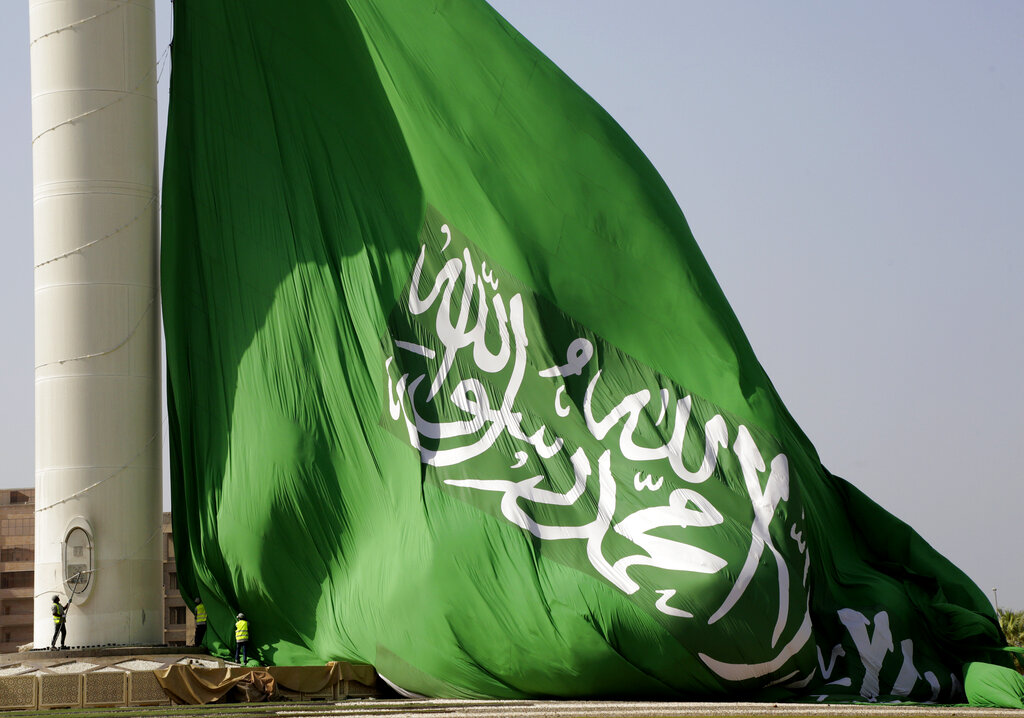The most compelling proof of Iran’s direct involvement in this war with Hamas is the timing of the hostilities.
Last month, Saudi Crown Prince Mohamed Ben Salman said, “Every day we get closer” to reaching an agreement with Israel. The alarm bell must have rung for the Iranian Supreme Leader and his henchmen, the terrorist paramilitary organization known as the Islamic Revolutionary GuardCorps. Iran’s well-planned hegemonic ambitions to dominate the Middle East and chase the U.S. from the region will be thwarted if Arabs and Israelis find common ground. Iran needed to start a war before the normalization reached fruition.
There is also ample evidence of Iranian involvement beyond just the timing. According to the State Department, Iran is a leading state sponsor of terror, providing one hundred million dollars a year to support Hamas terrorism through a “global network of crypto, cash and charities,” according to Reuters. Hamas would not have been able to wage this war without Iranian funding.
The Biden administration realized the best path to stabilize the Middle East was to create diplomatic relations between the Kingdom of Saudi Arabia and Israel. America’s adversaries, Russia and China, had already joined Iran in an axis of resistance against America. So the logical choice to advance American interests was to create a bulwark of allied nations against Iran.
If Saudi Arabia were to normalize relations with Israel, other Arab and Muslim countries would more likely participate in various forms of American-led rapprochements with the strongest military in the Middle East, Israel, profoundly undermining Iran’s goal for regional dominance. It is still a primary American security imperative to restart the normalization process between Riyadh and Jerusalem, creating a united front against Iran.
Earlier this month, President Biden told 60 Minutes that normalization is not dead because it is in the interest of the Arabs. “The Saudis, and the Emiratis, and other Arab nations understand that their security and stability is enhanced if there’s normalization of relations with Israel.”
What must not be forgotten, however, is that Iran remains a bitter rival of Saudi Arabia despite their recent rapprochement, facilitated by China.
Today, the Saudis are on the sidelines, waiting to see the outcome of this war before taking a chance on the U.S. and Israel. In part, this is because their population empathizes with their fellow Arabs, who have been portrayed as victims of the Jewish state. If America wants to get the Saudis on board with normalization eventually, American officials need to make a concerted effort to call out the international media, who provide little context for the images they show, which leaves the viewer with the impression Israel deliberately targets civilians.
I know firsthand from covering four Gaza wars Israel does not target civilians. In 2014, I was with an elite IDF unit that was attacked by Hamas from a United Nations hospital, not responding until a military lawyer was consulted, with final approval from the Defense Minister. The cost of comporting with international law was the lives of three Israeli soldiers.
The message to moderate Arab states should be that this war is against Hamas terrorists who abuse their people, not a war against Palestinian civilians. When electricity was cut from Israel, the Palestinians suffered, but Hamas and its army continued to have light, food, and clean water for themselves. Using Palestinians as human fodder to increase causalities is anti-Palestinian. Is there an Arab leader who can say that publicly without risking his neck?
The Arab nations are privately rooting for Israel to decimate Hamas, as its Muslim Brotherhood Salafist ideology is a genuine threat to the stability of their governments. Egyptian President Abdel Fattah El-Sisi, Crown Prince Mohammed Bin Salman of Saudi Arabia, Jordan’s King Hussein, and even the Palestinian Authority president want Israel to end Hamas’ reign and send a message to Iran that they won’t stand for interference with their government or people.
It must be repeated again and again that it is Hamas that commits war crimes, especially by using innocent Palestinians as human shields to protect the sites from which they fire against Israeli civilian areas. When you break the international law of distinction by not wearing uniforms and deliberately blending into the civilian population, you define yourself as a terrorist.
No one should entertain excuses or rationalizations for their barbarity. The Biden administration must lobby our allies and potential allies — the Emirates, Bahrain, Egypt, Jordan, and Saudi Arabia — to present a more balanced picture to their populations. Their media outlets are conduits for their leadership.
Meanwhile, if Iran activates Hezbollah in the north, it will become a defining moment in American history. Hezbollah can overwhelm Israel’s multilayered anti-missile system and strike accurately everywhere in Israel. If the U.S. uses its carrier strike groups to help Israel devastate Hezbollah in Lebanon and Syria, it will send a clear message to the Saudis, Jordanians, Emiratis, Egyptians, and others, that normalization with Israel, America’s best friend in the region, makes strategic sense.
President Biden’s visit to Israel and American bipartisan support in Congress also powerfully conveys to the world that America stands with its allies. Taiwan is listening and is hopeful.
If Iran is diminished, her allies will be chastened, and the region might become more stable. If this scenario unfolds, American national security will be strengthened, and the likelihood of another round of violence in the region will be reduced for years.
That is all one can hope for in the Middle East: a strong Israel a respected America, and both coinciding with Saudi interests.
This story originally appeared in The Hill on October 24, 2023
Eric Mandel is director of the Middle East Political Information Network and senior security editor for the Jerusalem Report.
